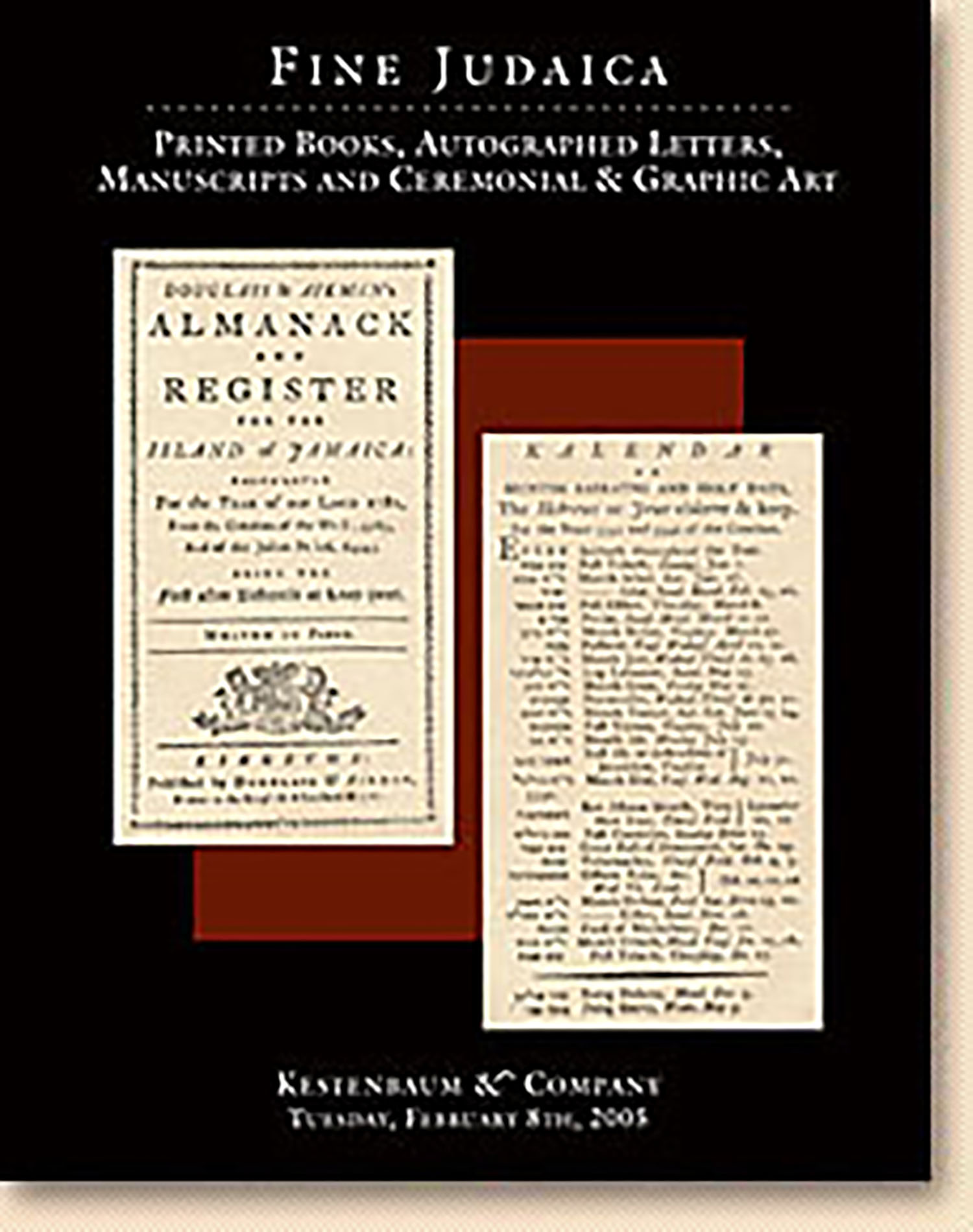(ADLER, NATHAN). Autograph Letter Signed by Louis Cohen, to Tzvi Hirsch Lehren of Amsterdam regarding the election of Nathan Adler as Chief Rabbi of the British Empire in succession to Solomon Hirschell

AUCTION 27 |
Tuesday, February 08th,
2005 at 1:00
Fine Judaica: Printed Books, Autographed Letters, Manuscripts, Ceremonial & Graphic Art
Lot 237
(ANGLO-JUDAICA)
(ADLER, NATHAN). Autograph Letter Signed by Louis Cohen, to Tzvi Hirsch Lehren of Amsterdam regarding the election of Nathan Adler as Chief Rabbi of the British Empire in succession to Solomon Hirschell
London: 22nd Kislev, 5605 (4th December, 1844)
Est: $2,000 - $2,500
Tzvi Hirsch Lehren (1784-1853) of Amsterdam, was the administrator of the Pekidim and Amarkalim Society, a charitable fund that disbursed monies collected in Western Europe to provide for the welfare of the Jews of Eretz Israel. Lehren was also a staunch defender of traditional Orthodoxy against the inroads of Reform.
In this letter, Lehren’s London correspondent Louis Cohen, gleefully reports that “no apikoros or any of the Brunswick conclave” were elected to positions of authority within the British Rabbinate. The winner of the election for the Chief Rabbinate was Nathan Marcus Adler, ordained by R. Abraham Bing in 1831, a candidate recommended by Lehren himself.
German-born and educated, Adler (1803-1890) previously served as rabbi of Oldenburg, and later Hanover, where he succeeded his father, Marcus Baer Adler. Lehren and Cohen’s hopes were not unfounded. Adler proved to be a “supporter and upholder of our religion, and as well as a talmid chacham, a guardian against those who wish to overthrow and subvert [Judaism].”
Louis Cohen (1799-1882) distinguished himself in English society, both Jewish and general. In 1819 he became a member of the London Stock Exchange at the tender age of 20 after establishing the firm of Louis Cohen & Co. He was a commanding figure in the community, sharing prominently in the management of its affairs.
It is one of the ironies of history that in the 1844 elections for Chief Rabbi, Samson Raphael Hirsch, today aknowledged as a monumental thinker, “had no votes.” Neither did Benjamin Hirsch Auerbach (of Halberstadt), a third candidate.
See JE, Vol. IV, p. 152; EJ, Vol. II, cols. 285-6 and Vol. X, col. 1584
